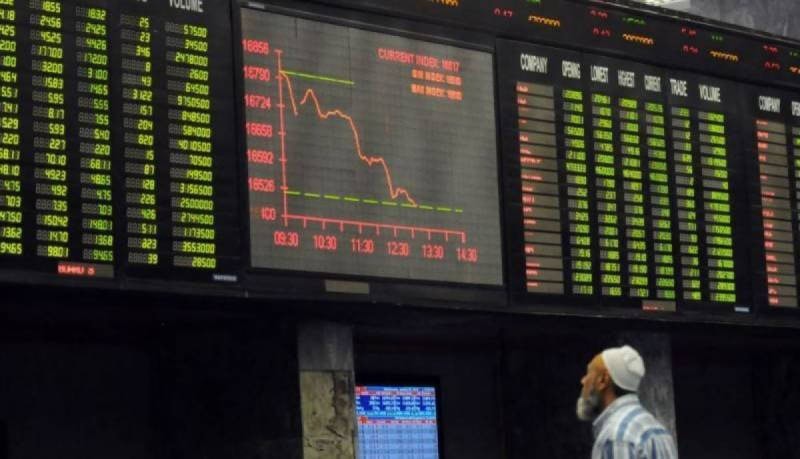Analyzing The Great Decoupling: Impacts On Businesses And Consumers

Table of Contents
Geopolitical Factors Driving the Great Decoupling
Geopolitical risks are the primary catalyst behind the Great Decoupling. The increasingly strained relationship between the US and China, characterized by trade wars, sanctions, and technological competition, is a prime example. This rivalry has spurred a significant shift away from reliance on single-source supply chains, particularly those heavily concentrated in China. Other factors contributing to this fragmentation include:
- Rising trade protectionism and tariffs: Increased use of tariffs and other trade barriers by various nations creates friction and disrupts established trade flows, prompting businesses to seek alternative sourcing options.
- Increased geopolitical uncertainty and instability: Global political instability, including conflicts and regional tensions, introduces significant risks to supply chains, forcing companies to reassess their reliance on potentially unstable regions.
- Diversification of supply chains due to political risks: Businesses are actively diversifying their supply chains to mitigate the risks associated with political instability and potential disruptions in specific regions. This often involves nearshoring or reshoring operations.
- The impact of sanctions on global trade flows: Sanctions imposed by various countries disrupt established trade routes and partnerships, further contributing to the fragmentation of global supply chains. This necessitates careful navigation of geopolitical complexities for businesses operating internationally.
Impacts on Businesses
The Great Decoupling presents numerous challenges for businesses worldwide. The most significant impacts include:
- Increased transportation costs and lead times: The shift towards more geographically diverse supply chains inevitably leads to longer transportation distances and increased shipping costs, impacting profitability.
- Difficulty securing raw materials and components: Disruptions in supply chains caused by geopolitical events, pandemics, or natural disasters can lead to shortages of crucial raw materials and components, halting production.
- Higher production costs due to supply chain fragmentation: The complexity of managing multiple suppliers across various geographical locations increases operational costs and necessitates more sophisticated supply chain management systems.
- The need for greater supply chain visibility and traceability: Businesses need to gain greater transparency and control over their supply chains to effectively manage risks and ensure product quality and safety.
- The need for enhanced risk management strategies: Businesses must implement robust risk management strategies to mitigate potential disruptions and ensure business continuity in a more fragmented and unpredictable global environment.
Strategies for Business Adaptation
To thrive in this new landscape, businesses must adopt proactive strategies to enhance supply chain resilience and mitigate risks. These include:
- Investing in automation and technology to increase efficiency: Automation and advanced technologies such as AI and machine learning can optimize processes, reduce costs, and improve supply chain visibility.
- Diversifying sourcing locations to reduce reliance on single suppliers: Spreading sourcing across multiple countries and suppliers reduces vulnerability to disruptions in any single location.
- Strengthening relationships with key suppliers: Building strong, collaborative relationships with key suppliers fosters trust, transparency, and improved communication, facilitating smoother operations.
- Implementing robust risk management strategies: Proactive risk assessment, scenario planning, and contingency planning are crucial to prepare for and mitigate potential disruptions. This may include investing in alternative suppliers and transportation methods.
- Nearshoring and reshoring: Relocating production facilities closer to home markets reduces transportation costs and lead times and enhances supply chain control.
Impacts on Consumers
The Great Decoupling's effects on consumers are largely manifested through:
- Increased prices for goods and services due to higher transportation and production costs: The increased complexity and costs associated with managing fragmented supply chains directly translate to higher prices for consumers.
- Potential shortages of certain products due to supply chain disruptions: Disruptions can lead to limited availability of certain goods, impacting consumer choice and potentially causing frustration.
- Changes in consumer spending patterns as a result of higher prices: Higher prices can lead to changes in consumer behavior, impacting purchasing decisions and potentially reducing overall consumer spending.
- The impact on consumer confidence and purchasing power: The combined effects of higher prices and potential shortages can negatively impact consumer confidence and reduce purchasing power, affecting overall economic growth.
Conclusion
The Great Decoupling presents significant challenges and opportunities. Businesses must adapt by building more resilient and diversified supply chains, incorporating advanced technologies, and implementing robust risk management strategies. Consumers, meanwhile, may experience higher prices and occasional product shortages. Understanding the implications of the Great Decoupling is crucial for navigating the evolving global economic landscape. By proactively adapting to these changes and implementing appropriate strategies, businesses can mitigate risks and seize new opportunities. Learn more about analyzing the impact of the Great Decoupling on your specific industry and develop effective strategies to ensure long-term success. Don't be left behind – understand the implications of the Great Decoupling and prepare your business for the future.

 Trump Appoints Casey Means A Leader In The Maha Movement As Surgeon General
Trump Appoints Casey Means A Leader In The Maha Movement As Surgeon General
 Feds Hesitation Why Interest Rate Cuts Arent Imminent
Feds Hesitation Why Interest Rate Cuts Arent Imminent
 Champions League Semi Finals Barcelona Inter Arsenal Psg Dates
Champions League Semi Finals Barcelona Inter Arsenal Psg Dates
 150 Million Payout For Credit Suisse Whistleblowers
150 Million Payout For Credit Suisse Whistleblowers
 Operation Sindoor Pakistan Stock Market Plunges Over 6 Kse 100 Halted
Operation Sindoor Pakistan Stock Market Plunges Over 6 Kse 100 Halted
